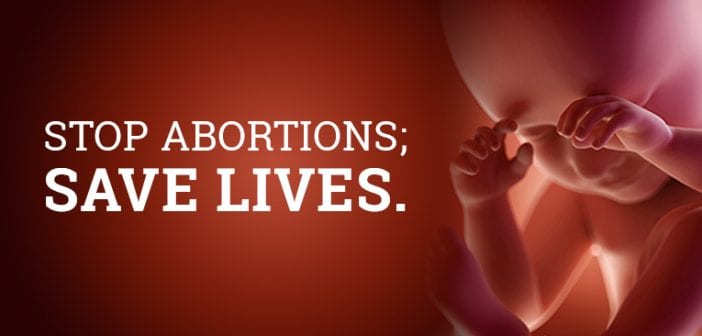Federal District Judge Lee Yeakel recently ruled against Texas’s Dismemberment Abortion Ban, a law that prevents a brutal abortion procedure that rips apart living children in the womb to cause their death. In Yeakel’s ruling, he stated that abortion in the second trimester was an “absolute right” and said that prohibiting this brutal practice placed too much interference on that “right.” Judge Yeakel’s ruling is disappointing but expected, given his long and consistent record of ruling against Life. However, his court is only the first to hear this case, and the Texas Office of the Attorney General has already appealed the ruling to the U.S. Fifth Circuit Court of Appeals, which has historically reversed lower courts’ anti-Life rulings.
Texas Right to Life championed the Dismemberment Abortion Ban during the regular session of the 85th Texas legislature to prompt judicial debate, publicly underscore the humanity of the preborn child, and, most importantly, to immediately save lives. The Dismemberment Abortion Ban holds tremendous potential for a substantial and historic Supreme Court victory. Meanwhile, anti-Life advocates are forced to admit the brutality and inhumanity of abortion in court and before the public in mainstream media. Discussing and banning the gruesome procedure by which a living preborn baby is torn limb from limb refocuses society’s conversation about abortion to the humanity and value of the preborn child.
Normally, abortionists carefully shroud their victims from the public eye, using euphemisms to hide the baby’s humanity or avoiding their mention altogether. However, the abortion businesses that brought this lawsuit and an unprecedented five-day trial unknowingly spotlighted the preborn and revealed their callous indifference to these children’s suffering.
Former abortionist and Pro-Life advocate Anthony Levatino, M.D., described the brutality of committing the dismemberment abortion procedure on a living human being. He explained how an abortionist must take inventory of the baby’s body parts during the procedure to ensure nothing is left inside the woman, and that taking inventory could sometimes include seeing the baby’s face looking back at him. Another state witness, Dr. David Berry, also described the sickening process of reassembling the baby, recalling children’s hearts still beating after he dismembered them.
Dr. Farr Curlin, an expert witness on bioethics, provided a more philosophical defense of protecting the preborn from death by dismemberment. He argued that the practice of live dismemberment is egregiously disrespectful to a human being and contradicts basic principles of medical ethics. He discussed how banning the dismemberment abortion procedure would actually safeguard the integrity of the medical profession overall. Dr. Curlin explained the Pro-Life implications of the medical profession’s core value, “do no harm.”
Another expert the state called was Dr. Colleen Malloy, a neonatologist who testified on fetal pain. She discussed how the pain experience for babies is different from adults but is pain nonetheless, and that because babies are unable to describe their pain, doctors must use indirect evidence such as hormonal responses, changes in blood pressure, and behavioral patterns. From her medical experience, she told of seeing babies in utero crying, grimacing, kicking, and moving away from noxious stimuli. She explained how, as a doctor, managing the pain of all her patients (born or preborn) and providing comfort care is her professional obligation. Dr. Malloy’s opinion is that, because babies in utero haven’t experienced extreme stimuli, dismemberment would be excruciating. She concluded her testimony by explaining how one cannot objectively select a point during embryonic development to treat a fetus different from a born human being.
Finally, during the state’s closing arguments, the attorney general’s legal team explained how Texas has a compelling state interest in regulating the medical profession, prohibiting the dismemberment procedure, and protecting preborn Life. Darren McCarty, the lead attorney for the state, observed that “It would be a dark irony, your Honor, if the same constitution that required states, correctly so, to provide a humane execution for those convicted of the most heinous crimes in our society would be the same constitution that would bar the State of Texas from banning the living dismemberment of an unborn child.” During McCarty’s closing argument, the state showed graphic pictures of babies who had been dismembered. This was a solemn and horrifying moment in the courtroom, and several of the abortion lobby’s lawyers and advocates refused to look at the victims of the practice they fought so doggedly to maintain.
Though he ultimately ruled against the Pro-Life law, Judge Yeakel did allow the state to build a robust official record with powerful evidence like medical textbook illustrations, 3D models of fetal development, and various types of medical instruments used in dismemberment procedures. The five-day trial and the case overall is unique and historic, serving as a powerful opportunity to build an insightful record to prove to the higher courts why they should recognize the gruesome nature of live dismemberment and Texas’s compelling state interest in protecting preborn Life. This law and the subsequent lawsuit advance the cultural conversation about the dignity and humanity of the preborn one step further.
Stay tuned to TexasRightToLife.com and follow us on social media as we continue to be involved and bring you updates on this historic lawsuit.



